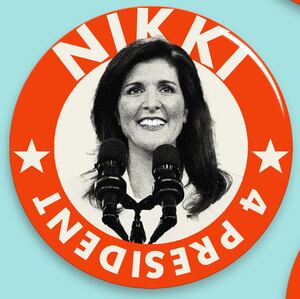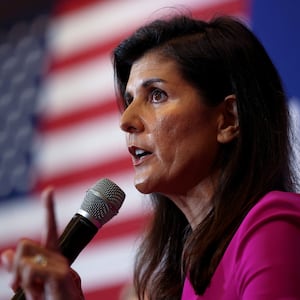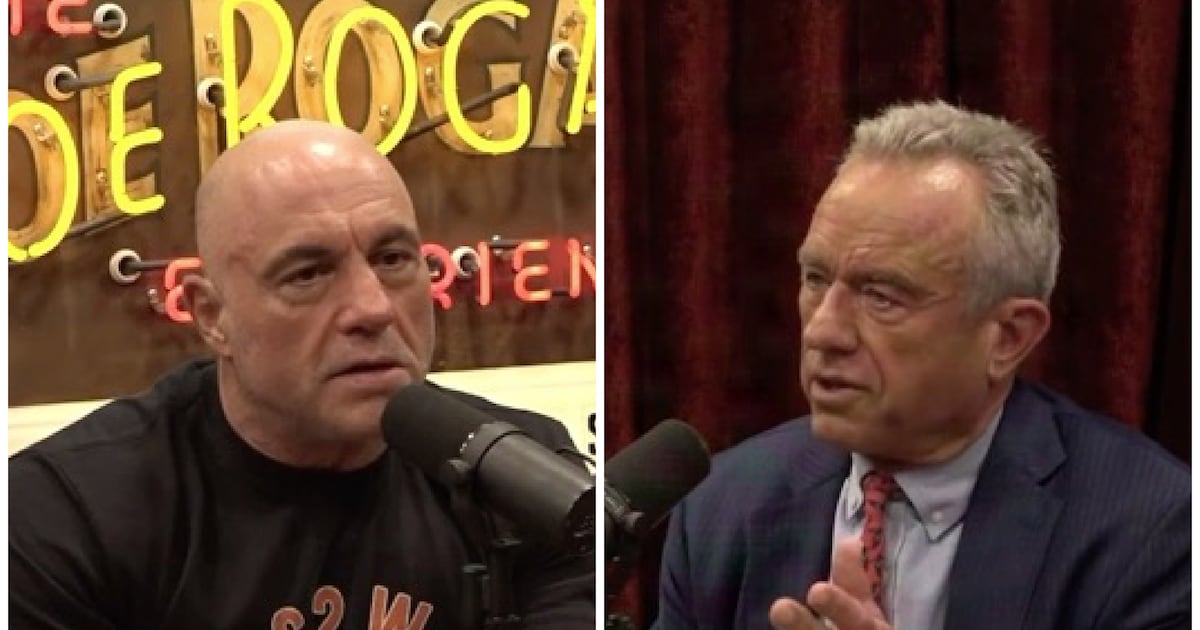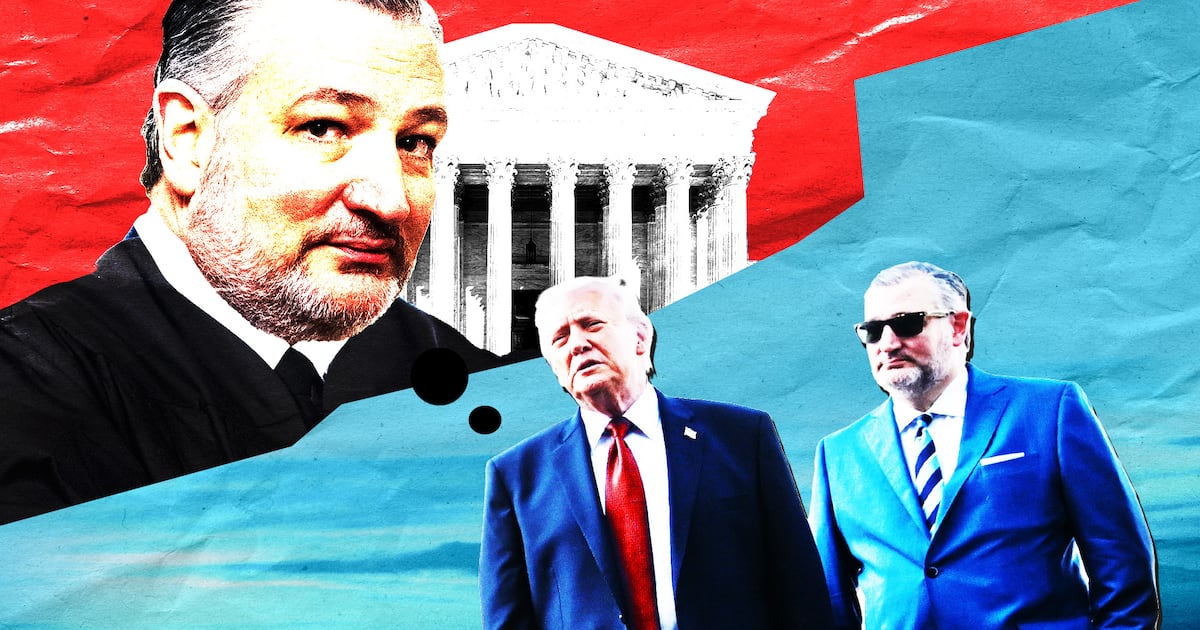Donald Trump finally has a Republican challenger for president. The former governor of South Carolina and ambassador to the United Nations, Nikki Haley, is the party’s second candidate. Her 14 years in political office should give critics enough to work with, but in a political atmosphere where substance takes a backseat to the culture war, some progressives are most invested in the South Carolinian’s name.
To these gatekeepers of cultural authenticity, Haley must either be Nimarata or a self-hating Indian who’s trying too hard to be white.
For those who don’t know, Haley’s first name is Nimarata. Nikki is her middle name. They are both Punjabi names, but Nikki is one more familiar to Anglophone ears and probably why Haley chose it; not to run away from her ethnicity, but for convenience.
Over the years, there has been no shortage of tweets, articles, and other commentary explicitly or implicitly malicious by mentioning that her first name is Nimarata. Even as a little-known local politician, her name was used to suggest that she was white-washing herself, so much that Haley mentioned it in her 2021 memoir.
The more prominent she got, and the more she became a national figure, the more national this silliness got. It first became a national meme when she was serving as UN ambassador. Even as a private citizen in 2021, activist Bree Newsome attacked)" href="https://urldefense.com/v3/__https://twitter.com/BreeNewsome/status/1388263152375189505__;!!LsXw!RfgjvUkBwAJsMbG22nE1dRReeg6jOS3G7QMM74g0D3xSnN50zozRyqowGzM0QwxQsnf2_4QROzikK3yG8pn1FbHyfzjLeQ$">attacked her for going by Nikki. And there’s a resurgence now that she’s a presidential candidate.
Responding to a Nikki Haley quote—“Take it from me, the first minority female governor in history: America is not a racist country”—the controversial sports journalist (who mainly focuses on issues of race and identity) Jemele Hill tweeted)" href="https://urldefense.com/v3/__https://twitter.com/jemelehill/status/1626113942966919169__;!!LsXw!RfgjvUkBwAJsMbG22nE1dRReeg6jOS3G7QMM74g0D3xSnN50zozRyqowGzM0QwxQsnf2_4QROzikK3yG8pn1FbGnGbb-6w$">tweeted, “So why did she change her name then?”
CNN pundit Asha Rangappa, who has been attacking Haley for not using “Nimrata” for years, was one person leading the charge following Haley’s announcement, writing, “‘Nikki’ helps her assimilate more than if she went by ‘Nimrata.’” (Soon after, Rangappa changed her name to Renuka on Twitter after the revelation that, wait for it, Asha is her middle name.) Mary Trump, cursing at Haley, also called)" href="https://urldefense.com/v3/__https://twitter.com/MaryLTrump/status/1625649699813195776__;!!LsXw!RfgjvUkBwAJsMbG22nE1dRReeg6jOS3G7QMM74g0D3xSnN50zozRyqowGzM0QwxQsnf2_4QROzikK3yG8pn1FbFdSXoeMQ$">called her “Nimrata.” Twitter personality Claude Taylor tweeted)" href="https://urldefense.com/v3/__https://twitter.com/TrueFactsStated/status/1625905871946493961__;!!LsXw!RfgjvUkBwAJsMbG22nE1dRReeg6jOS3G7QMM74g0D3xSnN50zozRyqowGzM0QwxQsnf2_4QROzikK3yG8pn1FbGCvUK37A$">tweeted, “Is Nimrata still talking?”
For the record, Haley’s first name is Nimarata, not Nimrata. Has it occurred to the critics that they might be the problem, and that Haley goes by Nikki because she’s tired of people misspelling (or mispronouncing) her name?
The caveat of using one’s middle name instead of first name is missing when someone mentions former presidents Stephen Cleveland and Thomas Wilson and incumbent senators Cynthia Shaheen and Willard Romney. And let’s not get into the whole Hiram Ulysses Grant screwup at West Point that permanently changed the man’s name without his consent. None of them was or is running away from their ethnicities. And none of them was or is shamed for using their middle names—to the contrary, Grant was celebrated as U.S. Grant during the Civil War. Only Haley is. Because she’s South Asian with an unfamiliar first name.
This infuriates me because it is personal. I live a dual life. I live in English and, to Anglophone friends and colleagues and readers, as Shay. And I live in Farsi as Khashayar, my first name. No blood relative of mine calls me Shay.
It gets better. My brain doesn’t correspond if someone calls me Shay in Farsi. And it doesn’t correspond if I’m called Khashayar in English. All the time, receptionists have to call my name a few times until I remember that Khashayar is me. Immediately, I say that they should call me Shay.
Ask anyone who knows me, and they’ll tell you that I’m not running away from being Persian. I hated that Baraye, the Iranian revolution’s anthem, was nominated for a Grammy this year because it forced me to be emotionally invested in and watch the Grammys for the first—and presumably last—time.
A bulk of my writings and work is about Iran policy. It’d be hard to have known me for a month and not received one of my lectures about Cyrus the Great—who liberated the Babylonian Jewish slaves and gave them immunity in Persia while also assisting some to return to Jerusalem: he is the only gentile mashiach in the Bible; he created the first nation-state in history—OK, I’m getting distracted again fanboying on Cyrus. I also cook ghormeh sabzi and fessenjun and militantly argue that Persian cuisine is the superior type of food—because it objectively is, and people who disagree need tastebud transplants to fix their problem.
I am named after Cyrus the Great’s successor thrice removed as emperor, known to most Americans as Xerxes. In the Bible, he’s remembered as Achashverosh. If you’re familiar with the story of the Jewish holiday Purim, then you know him as Queen Esther’s husband. Suffice to say, I never miss an opportunity at a Purim party to make a point out of this to make the whole feast about me! The meaning of my name is “the one who’s a hero among the kings.” I’m neither embarrassed by my name—with that meaning, how could I?—nor ashamed of being Persian. Quite the opposite, sitting in my comfortable chair in the capital of the liberal civilization, I’m ashamed that I’m not one of the freedom fighters in Iran today. Yet I insist on remaining Shay.
This is because I love Khashayar too much, and, combined with an unhealthy urge to correct people, I can’t stand it when people mispronounce my fantastic name.
On my bookshelf sits an award I accepted from the Johns Hopkins University’s Alumni Association, but it has my name misspelled as “Khashayer.” When I saw it, I had to think whether to live with the inaccurate celebration of a moment of my life I am immensely proud of. Similarly, I’m left with deciding whether I should let go of the mispronunciations or teach people how to pronounce a name they have never heard of including a consonant that doesn’t exist in English.
But it’s also for convenience. My name has three syllables—Nimarata has four—while most Americans’ names have either one or two syllables, and those with names longer than two syllables shorten theirs: Most Jonathans go by Jon, Williams by Will or Bill, Annabelles by Annie, and Cassandras by Cass or Cassie. So I go by the middle part of my name, Shay.
Almost certainly, Haley’s decision to go by Nikki comes out of nothing but convenience, and there are many overlaps between our name stories. She could go by a made-up name like Nim or Nimmie, as I did, or her other actual name that is familiar to everyone in the community she grew up in. And, just like me, if you’ve ever heard her speak without hearing her mention that her parents are immigrants from India, you weren’t paying attention. She’s many things, but ashamed of her heritage she isn’t.
There are political criticisms of Haley that apply—and I share some of them—but to ridicule her for her name is at once juvenile and cynical, something that only schoolchildren and partisan operatives are capable of.
There are immigrants who come to the United States in search of opportunity, but most of us come here seeking freedom, not simply hoping for political freedom, but also liberation from illiberal social orthodoxies.
That people of supposedly similar backgrounds get to make very different decisions is the diversity that’s worthiest of celebration because it’s the foundation of a liberal society. In the United States, immigrants seek to lead lives that suit us best. Some of us keep our names. For others, it’s a matter of courtesy to use nicknames—or our middle names—because we don’t want to force a nation so kind that it took us in to go through a needlessly uncomfortable process of learning our impossible names.
And for a few who are too proud, we do it not because we are embarrassed by our names, but because we love them so much that we can’t stand hearing them butchered. Most immigrants come here to fit in, not fit the society to ourselves, and this is the key to the immigrant success story. It’d be nice if the supposedly immigrant-loving left stopped telling us that we should stop assimilating.
Whatever Haley’s flaws, she’s the daughter of immigrants who represented America before the United Nations—an immigrant success story, and an American success story. Stop attacking her for being Nikki. You’re only embarrassing yourselves.









